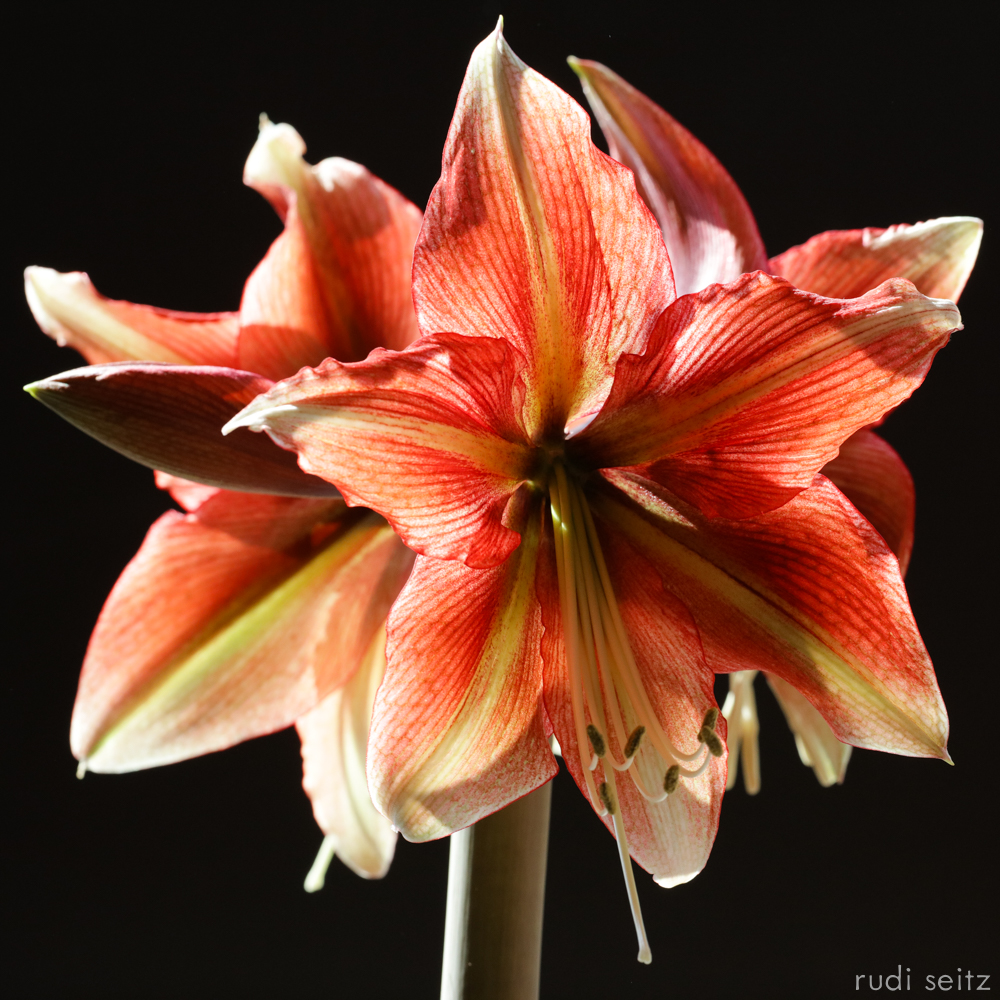I got a good night’s sleep but I felt my anxiety returning this morning. I did some deep breathing and it helped. The key, I think, is to be conscious of the inhale and exhale, to make them slow and smooth, and to let the inhale fill the belly. It’s easy to believe you’re doing that when you’re not. In the past few days I’ve tried to use deep breathing to calm down, and it seemed not to make much of a difference. Why? Isn’t deep breathing supposed to be the most effective thing you can do for stress? I was probably too agitated to realize that my “deep breathing” consisted of shallow inhales and quick exhales. I was making enough noise to give the impression that I was doing something deliberate, when I was really just expressing panic through my breath. This morning I found it easier to concentrate on my breathing, slow it down and make it smooth, and I experienced a more calming effect from it. It works if you really do it.
I came up with a meditative exercise for this time of social distancing that completely changed my mood. Here’s how I would teach it to someone else: stand up straight. Notice your posture and adjust it until you’re standing up with comfort and confidence. Focus on your breathing and make it slow, smooth, deep. Close your eyes and reach your hands out to your side as though you were holding hands with a circle of people who you care about. There’s one person on your left and one on your right. Feel the warmth of their hands. Concentrate on this warmth until your hands feel warm too. Imagine different people from your life entering the circle. Imagine everyone is singing the same note in unison. Or imagine everyone is joining in an affirmation: “We’ll get through this together.”
I cried at the end of that. I did some singing practice against a drone, and it helped too. I have an Indian digital “tanpura box.” I switched it on for the first time in a while, and I just held a steady C against its C. I could hear my pulse in my voice.
Another thing that helped today was to think about adaptive perspectives, ways of looking at the situation that make it easier to cope. One of the most paralyzing aspects of the current situation is its novelty. Most of us have never experienced anything like this and never expected we would. There’s a tendency to think it’s somehow wrong or unfair, that it “shouldn’t” be happening, or that it wasn’t “supposed to happen.” Reality itself seems like it’s gone off course, and we want to steer it back to where it was. But resistance makes it harder to move forward. I actually find some comfort in the thought that pandemics aren’t novel. They’ve been happening throughout human history. The first recorded one happened in 430 B.C. Skipping ahead, the sixth cholera pandemic started in 1910, followed by the flu pandemic of 1918. There were other major flu pandemics in 1956 and 1960 and of course there’s the ongoing AIDS pandemic. I’m leaving out H1N1, SARS, MERS, Ebola, and so on. And there are enough viruses out there to cause pandemics for the indefinite future. So although coronavirus is turning our lives, and our expectations about life upside down, this is far from the first time people have gone through something like this. The headline of the Seattle Daily Times on Oct. 5, 1918 blared “Churches, Schools, Shows Closed: Epidemic puts ban on all public assemblies.” When we were born into this world, no one gave us a certificate saying that we’d never have to experience a pandemic. This too is a part of life for humans on this earth. I’m not sure how much comfort that will be if I or my loved ones get sick, but it’s at least comforting to me now as I read the current headlines and feel like the world is falling apart in a way that’s never happened before. Actually, this has happened before and will happen again.
One thing that compounds my anxiety about any situation is the expectation that I simply won’t be able to cope. But somewhere, sometime in the past few years, I heard it said that we often underestimate our ability to cope. We’re better at coping than we think. This observation stuck with me and has become one of the most useful items in my mental toolbox. Presented with a difficult situation, most people will find some way to deal with it. If you’re reading this now, it means that every challenge you faced in your life so far, you found some way to survive it. Every day, whether a pandemic is raging or not, brings a chance of death. But we should all assume we’ll find a way to get through this day, and the next, as we have so many days before. To reach this point, we’ve all demonstrated a capacity to deal with the unexpected, and we will again.
I’ll conclude with a photo. On 2/7 a friend of mine gave me an Amaryllis bulb. It came in a box with a plastic pot and some compressed soil. I followed the directions, adding water, planting the bulb, and waiting. By 2/23 it had done this. To take this photo, I put a piece of black cardboard behind the flower, adjusting the position so that the sun could still illuminate the petals from behind.
 ■
■